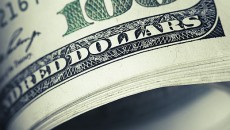Market Overview:
U.S. stocks fell after posting the best week this year, as energy producers tumbled with oil and economic data missed estimates. Brazilian assets dropped after a national election, while lenders led European equities lower after balance-sheet tests of the region’s banks.
The S&P 500 surged 4.1 percent last week for its best performance since January 2013, halting a four-week slide amid better-than-estimated earnings and data signaling a strengthening economy even as the Federal Reserve prepares to end its bond purchases after its meeting this week.
Among stocks moving today, Newfield Exploration Co. sank 6.9 percent to lead energy producers in the S&P 500 lower by 2.8 percent.
Fixed Income:
When it comes to deflation there’s the good — and there’s the bad and ugly. Europe faces the risk of the latter as it teeters on the edge of a recession that could trigger a debilitating dive in prices and wages. The U.S., meanwhile, may end up with the more benign version as surging oil and gas supplies push energy costs down and the economy ahead.
Treasuries have returned 5.3 percent this year, compared with 7.6 percent for German bonds and 15 percent for Greek debt, according to Bloomberg World Bond Indexes.
Key News:
- Pending Home Sales in U.S. Increase less than forecast
- housing starts climbed 6.3 percent to a 1.02 million annualized rate
- Declining borrowing costs will help make big-ticket purchases such as homes more affordable. The average rate on a 30-year, fixed mortgage fell to 3.92 percent in the week ended Oct. 23, the lowest since June 2013, according to Freddie Mac data.
- West Texas Intermediate crude fell to the lowest in almost 28 months as Goldman Sachs Group Inc. joined other banks in lowering price forecasts amid concern supplies are outpacing demand. Brent slid for a second day.
Global News:
- 25 out 130 Euro banks did not pass the stress-test.
- ECB lowered the forecast in global economic growth.
- The European Central Bank said it settled 1.704 billion euros ($2.2 billion) of covered-bond purchases last week as it started its latest effort to revive the euro-area economy.
- Only eight banks haven’t already plugged capital gaps or satisfied the ECB with plans to shrink, out of 25 found with a shortfall.
- China’s economic growth will slow to 7.2 percent in the current quarter, down from the previous three months, as domestic demand weakens
Article submitted by Daniel Rodriguez, Daniel Baez and Sebastian Giraldo-Castaño of the Capital Markets Lab (CML). To learn more about the Capital Markets Lab please visit https://business.fiu.edu/capital-markets-lab.





